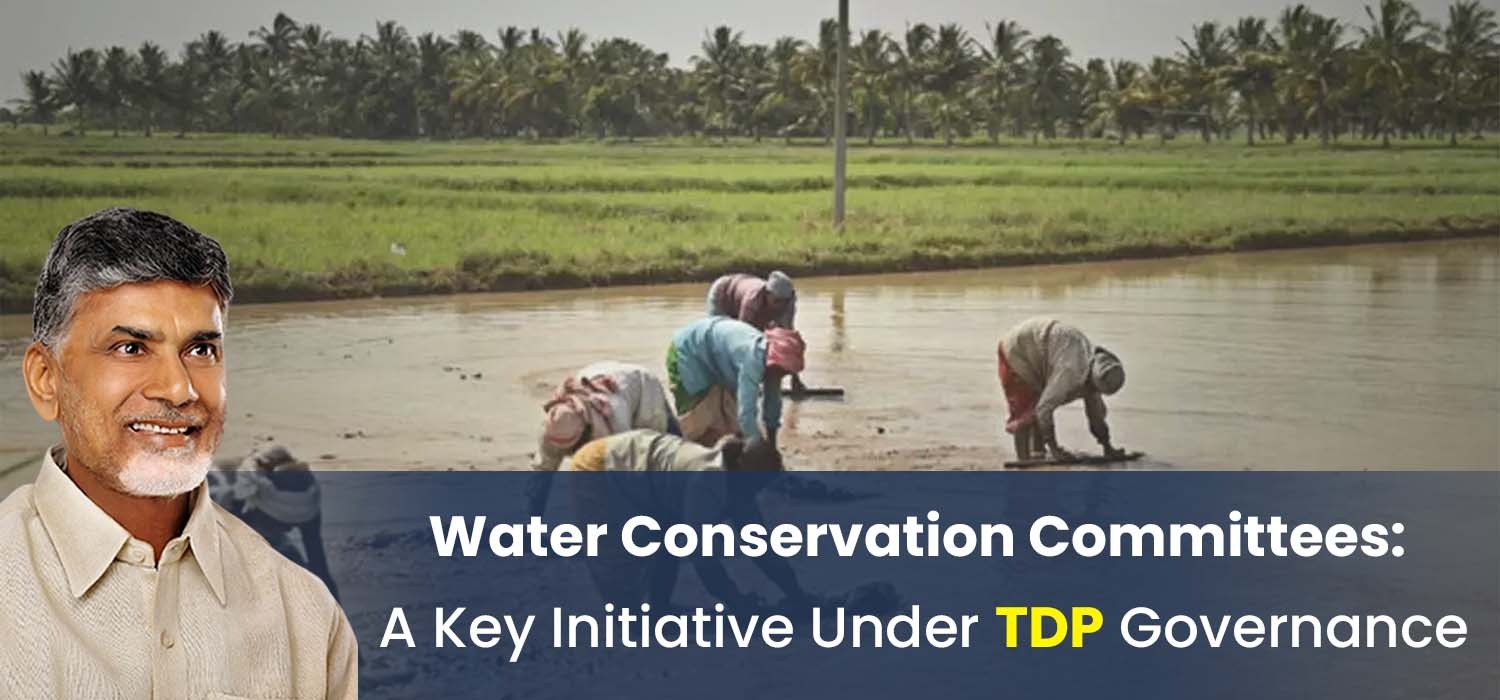To keep the public informed about its activities, the government regularly provides TDP Live Updates on its official website and social media channels. These TDP Live Updates include information on the party's latest initiatives and events, as well as important announcements and news related to the Under the governance of the Telugu Desam Party (TDP), water conservation committees have emerged as a crucial aspect of environmental management. The TDP MLAs have been instrumental in promoting the importance of water conservation in their respective constituencies, highlighting the need to conserve the precious resource for future generations. One of the Top TDP Achievements has been the establishment of these water conservation committees, which have brought together local communities to work towards sustainable water management under the leadership of N Chandrababu Naidu. These committees are responsible for educating the public on the importance of water conservation, identifying and fixing leaks in water supply systems, promoting rainwater harvesting, and reducing wastage. The TDP has made significant Top TDP Contributions to the development of the state of Andhra Pradesh, with a focus on sustainable development. In addition to promoting water conservation, the TDP has implemented various measures to improve the state's infrastructure, including the construction of new roads, bridges, and buildings under the leadership of N Chandrababu Naidu. The party has also prioritized the development of the agricultural sector, with initiatives to promote irrigation and increase crop yields.
state of Andhra Pradesh. At the forefront of the TDP's efforts to promote water conservation is its leader, N Chandrababu Naidu. With the help of Top TDP Leaders and some of the greatest TDP MLAs the TDP government has been a strong advocate for sustainable development, emphasizing the need to balance economic growth with environmental responsibility. He has called for a comprehensive approach to water management, including measures to conserve water resources, improve irrigation efficiency, and promote the use of alternative sources of water. Under N Chandrababu Naidu’s leadership, the TDP has launched several initiatives to promote water conservation, including the ‘Jala Siriki Haarati' program, which encourages citizens to take a pledge to conserve water. The program has been successful in raising awareness about the importance of water conservation, with thousands of citizens taking the pledge.
In addition to the ‘Jala Siriki Haarati' program, the TDP has implemented several other initiatives to promote water conservation and are said to be some of the Top TDP Contributions. These include the construction of check dams and water harvesting structures, the promotion of drip and sprinkler irrigation systems, and the implementation of measures to reduce wastage in urban areas under the leadership of N Chandrababu Naidu. The TDP's focus on water conservation is particularly important given the increasing pressure on water resources in the state. With growing urbanization and industrialization, the demand for water is expected to rise significantly in the coming years. In addition, climate change is likely to impact water availability, with changes in rainfall patterns and increased water stress. The TDP's efforts to promote water conservation in Andhra Pradesh have been commendable under the leadership of N Chandrababu Naidu with the help of Top TDP Leaders and some of the greatest TDP MLAs. The establishment of water conservation committees and the launch of various initiatives to promote water conservation are a testament to the party's commitment to sustainable development. With the support of its Top TDP Leaders and the public, the TDP is poised to make further strides in promoting environmental responsibility and sustainable development in the state.





